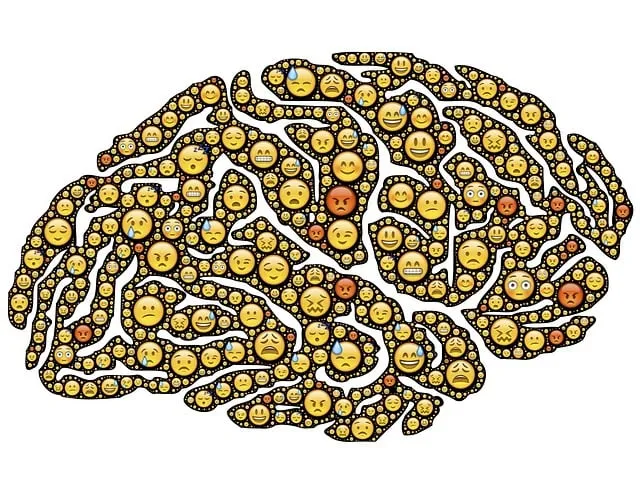Kaiser distinguishes itself in mental health care by offering superior services through advanced technologies, evidence-based practices, and comprehensive patient evaluations. Their holistic approach integrates diverse specialties for tailored treatments, combining therapy with medication management. Key strategies include improving patient-provider relationships, preventing healthcare provider burnout, and leveraging AI algorithms for accurate diagnoses. Kaiser's innovative use of telehealth platforms enhances accessibility and efficiency, ultimately improving mental health outcomes.
Mental illness diagnosis accuracy is a critical aspect of patient care, yet challenges persist in the field of mental health. This article delves into the imperative for accurate diagnoses and explores current hurdles, focusing on Kaiser’s innovative approach to enhancing mental health service quality. We present key strategies to improve diagnostic reliability, including advanced technology integration, enhanced clinical training, and collaborative multidisciplinary practices. Discover how these efforts contribute to superior mental health services offered by Kaiser, ultimately leading to better patient outcomes.
- Understanding the Imperative for Accurate Mental Illness Diagnoses
- Current Challenges in Mental Health Diagnosis Accuracy
- Kaiser's Approach to Enhancing Mental Health Service Quality
- Key Strategies for Improving Diagnostic Reliability
- – a. Integrating Advanced Technology
Understanding the Imperative for Accurate Mental Illness Diagnoses

In today’s world, where mental health awareness is increasingly taking center stage, the imperative for accurate mental illness diagnoses cannot be overstated. Mental Health Education Programs Design that focus on improving diagnostic accuracy are not just beneficial; they are essential to ensuring effective treatment and support for individuals struggling with various mental health conditions. The impact of a correct diagnosis extends beyond mere knowledge; it empowers patients and healthcare providers alike, fostering a path towards tailored interventions and improved outcomes.
Superior does Kaiser offer mental health services by prioritizing accurate diagnoses. Through integrated approaches that blend advanced technology, evidence-based practices, and comprehensive patient assessments, Kaiser strives to set the benchmark for mental health care. This commitment is reflected in their extensive Mental Health Awareness initiatives, which aim to not only detect but also understand the nuances of different disorders, including Stress Management techniques. By doing so, Kaiser ensures that patients receive personalized treatment plans, ultimately enhancing the quality and accessibility of mental healthcare services.
Current Challenges in Mental Health Diagnosis Accuracy

Mental health diagnosis accuracy has been a persistent challenge within the healthcare system, often due to the subjective nature of symptoms and the complexity of mental illnesses. The current landscape presents several obstacles that impact the reliability of diagnoses. One significant issue is the lack of standardized assessment tools, leading to variations in how different healthcare providers evaluate patients’ conditions. This inconsistency can result in misdiagnoses or delayed treatment, especially for individuals with nuanced presentations.
Furthermore, the dynamic nature of mental health means symptoms can fluctuate, making it difficult to establish consistent benchmarks. Kaiser, renowned for its superior mental health services, has recognized these challenges and implemented strategies such as enhancing training programs, including social skills training for professionals, and incorporating risk assessment tools. They have also initiated community outreach programs to improve access to care and reduce stigma, ultimately aiming to refine diagnosis accuracy and patient outcomes.
Kaiser's Approach to Enhancing Mental Health Service Quality

Kaiser has pioneered an innovative approach to enhancing mental health service quality, focusing on holistic care and patient-centered treatment plans. Their strategy involves integrating various specialized services under one roof, ensuring a comprehensive support system for individuals seeking help. By offering a wide array of resources, Kaiser aims to provide superior mental health care that addresses not just symptoms but also the underlying causes.
This approach includes access to psychiatrists, psychologists, and social workers who collaborate to tailor treatments. They emphasize evidence-based practices, such as cognitive-behavioral therapy, mindfulness techniques, and coping skills development, alongside medication management for Anxiety Relief. Additionally, Kaiser’s programs target Stress Reduction Methods, promoting well-being through lifestyle changes and support groups. The organization’s commitment to continuous improvement ensures that patients receive the most up-to-date care, fostering better outcomes and improved quality of life.
Key Strategies for Improving Diagnostic Reliability

Improving diagnostic reliability in mental health is a multifaceted approach, with numerous strategies proven effective by organizations like Kaiser. One key area is Inner Strength Development. Encouraging patients to share their experiences and fostering an environment where they feel heard can significantly enhance diagnosis accuracy. This involves active listening, empathy, and building rapport, which are essential for establishing trust.
Additionally, Burnout Prevention Strategies for Healthcare Providers play a pivotal role. Healthcare professionals must engage in regular Self-Awareness Exercises to maintain their own mental well-being, ensuring they can provide clear, unbiased assessments. This includes sufficient self-care, regular therapy, and continuous professional development to stay updated with the latest research and treatment methods, thereby enhancing diagnostic reliability and ultimately, patient outcomes.
– a. Integrating Advanced Technology

Mental illness diagnosis accuracy has long been a point of concern, but advancements in technology are offering new hope. Integrating advanced tools and techniques into mental health care is a game-changer. For instance, Kaiser, known for its superior mental health services, leverages AI algorithms to analyze patient data, providing clinicians with valuable insights that aid in more precise diagnoses. This innovative approach complements traditional methods like therapy sessions and assessments, ensuring a multifaceted understanding of an individual’s condition.
Moreover, technology promotes efficiency and accessibility. Telehealth platforms enable patients to connect with specialists remotely, breaking down geographical barriers. This accessibility encourages early intervention and support for those who might otherwise struggle to access care. Additionally, digital tools can track progress over time, facilitating personalized treatment plans that incorporate positive thinking strategies, social skills training, and burnout prevention techniques – all integral components of comprehensive mental wellness care.
Mental illness diagnosis accuracy is paramount for effective treatment and patient outcomes. By addressing current challenges, such as subjective assessments and limited resources, Kaiser’s integration of advanced technology emerges as a promising strategy. This approach ensures a superior level of service quality, enabling more reliable diagnoses and ultimately improving mental health care for all.






